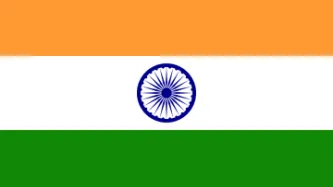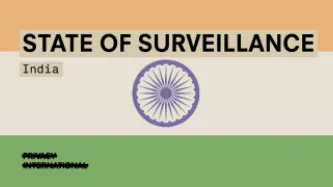Search
Content type: Examples
A security flaw in the mandatory "Diksha" app operated by the Education Ministry, which became an important tool for giving students access to coursework while at home during the pandemic, exposed the data of millions of Indian students and teachers for more than a year when a cloud server hosted on Microsoft Azure was left unprotected. In 2022, Human Rights Watch found that Diksha was able to track students location, and shared data with Google, which indexed more than 100 files from the…
Content type: Video
A quick catch-up on the state of play of apps round the world - though we end up mostly discussing India and the UK - and we celebrate a very special birthday.
You can find a much deeper and more detailed look at the various questions and concerns around coronavirus apps on our website: https://privacyinternational.org/long-read/3792/covid-contact-tracing-apps-are-complicated-mess-what-you-need-know and all the latest news in our tracker https://privacyinternational.org/examples/tracking-…
Content type: Examples
On the second day of India's nationwide shutdown due to the COVID-19 outbreak, the Karnataka government published the home addresses of quarantined residents, as a deterrent to breaking the rules. The list included individuals who had flown in from a foreign country and been asked to stay indoors for two weeks but who had not tested positive for the novel coronavirus. Although the government deleted a tweet announcing its intention, the list is still available on its website and is circulating…
Content type: Long Read
This piece was written by Aayush Rathi and Ambika Tandon, who are policy officers at the Centre for Internet and Society (CIS) in India. The piece was originally published on the website Economic Policy Weekly India here.
In order to bring out certain conceptual and procedural problems with health monitoring in the Indian context, this article posits health monitoring as surveillance and not merely as a “data problem.” Casting a critical feminist lens, the historicity of surveillance practices…
Content type: State of Privacy
Table of contents
Introduction
Right to Privacy
Communication Surveillance
Data Protection
Identification Schemes
Policies and Sectoral Initiatives
Introduction
Acknowledgement
The State of Privacy in India is the result of an ongoing collaboration by Privacy International and the Centre for Internet & Society.
Key Privacy Facts
1. Constitutional privacy protections: In 2017, the Indian Supreme Court ruled that the Indian constitution guarantees a right to privacy.
2. Data…
Content type: Long Read
Written by: Centre for Internet and Society
This guest piece was written by representatives of the Centre for Internet and Society (CIS). It does not necessarily reflect the views or position of Privacy International.
Introduction
As part of the State of the Surveillance project, CIS conducted a review of surveillance law, policy, projects, and trends in India. Below we provide a snap shot of key legal provisions governing surveillance in India and touch on…



